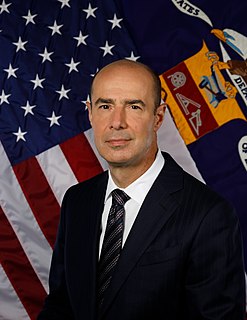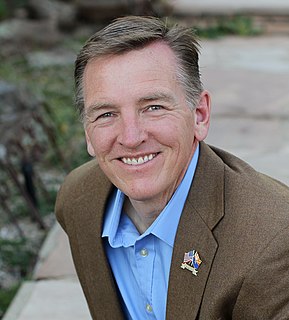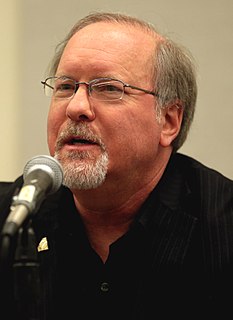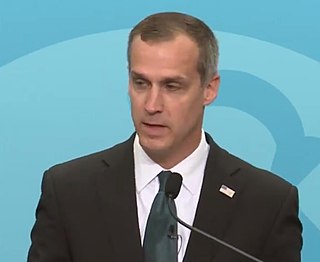A Quote by Eugene Scalia
The SEC and CFTC are expert agencies blessed with immensely capable professionals. Judges value and defer to that expertise - when it's exercised to make the hard decisions that Congress entrusts to an agency.
Related Quotes
After all, our Constitution was intended as a popular document. It was drafted and ratified by the people. It established democratic institutions. It entrusts the people with the power to make the tough decisions. And, in most cases, it prefers the will of the people to the unchecked rule of judges.
I believe there are a lot of questions today that require expert analysis by various agencies: political agencies, foreign ministries, economic agencies and security agencies. We need to assess everything and understand what we can agree on and what the implications will be both for Japan and for Russia so that both the Russian people and the Japanese people come to the conclusion that these compromise solutions are acceptable and are in our countries' interests.
It was inevitable that in the proliferation of media and media channels and the natural debasing of authority that comes when you make an expert of someone who knows a few things and can be on television and you put the word "expert" underneath them, that is to say me, then eventually the very concept of expertise itself would become meaningless.
The money problem facing the country from 1789 to 1896 existed because Congress never exercised is authority to "coin money or regulate the value thereof" - but rather delegated that authority, sometimes by charter and sometimes by default, to the banking system. This despite the provision in the Constitution that charged Congress with the power to 'coin money, regulate the value thereof, and of foreign Coin, and fix the Standards of weight and Measures.'
Something happens in school sometimes where you're like, 'Oh, I'm not an expert, and I have to defer to people who are.' And it happens not just in school: it happens in religion, too. Defer to the experts. A printing press is a big deal - they got the Bible, and all of a sudden they could read it for themselves.
The value we're all raised with, that women don't have the capacity to make moral decisions for themselves, particularly around their sexuality. That if they make the wrong decisions they are ruined for life. That someone more powerful, a man or even a more powerful woman, should be responsible for them. That's the value animating all of this. It's incredibly racialized as well.
That is the great thing about policing, you do have a lot of responsibility very early and you have got to make decisions, sometimes life and death decisions, very quickly and there is something about putting a uniform on and thinking 'people are looking to me to make decisions and to look after them' that makes you feel capable.


































